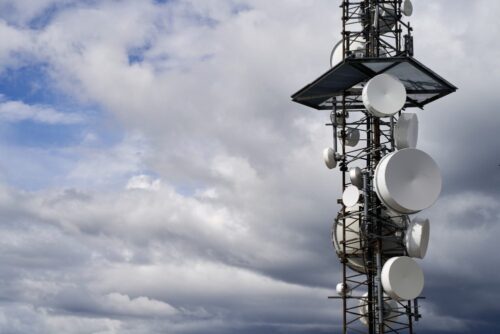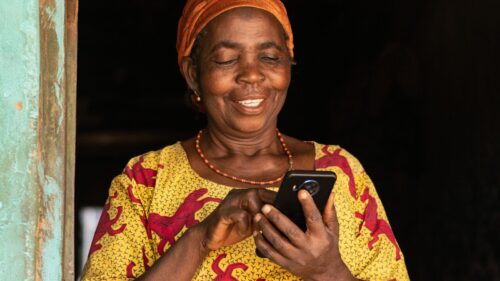The Nigerian government has announced that any potential increase in telecom tariffs will not exceed 60%, as discussions continue regarding adjustments to the cost of voice calls, SMS, and data usage. Bosun Tijani, the Minister of Communications, Innovation, and Digital Economy, emphasized the importance of balancing affordability for citizens with the sustainability of the telecommunications sector.
Speaking during an interview on Politics Today with Channels Television, Tijani clarified that while telecom operators are pushing for a 100% hike, the government is determined to cap any increase between 30% and 60%. “It is crucial that we avoid placing an excessive burden on Nigerians while ensuring the industry remains sustainable,” he stated.

The Push for Tariff Increases
Telecom companies have cited inflation and rising operational costs as the main drivers behind their demand for a 100% tariff hike. These operators argue that the increase is necessary to maintain and expand infrastructure such as towers, fibre optic cables, and data centres, which are vital for service quality.
However, Tijani rejected the proposal for a full-scale hike, highlighting the sector’s significant contribution to Nigeria’s economy—accounting for 14% to 16% of GDP—and its role in providing employment for thousands directly and indirectly.
Balancing Consumer Interests
When asked about the impact on Nigerians already struggling with high costs, Tijani explained that the government is working with independent experts, including KPMG, to base tariff decisions on evidence rather than industry demands alone. He reiterated that while telecoms are key drivers of growth, the focus must remain on affordability and meaningful connectivity.

Infrastructure Investments and Expansion
The minister also detailed government initiatives to support telecom infrastructure development, particularly in underserved rural areas. To bridge the gap where private investments fall short, the government plans to deploy special-purpose vehicles for infrastructure development.
A recent $2 million grant agreement with the U.S. government will contribute to the rollout of 90,000 kilometres of fibre optic backbone across Nigeria over the next five to six years. This initiative aligns with the National Broadband Plan 2020-2025, which aims to improve broadband penetration from 42.27% to 70% and ensure affordable, reliable internet for at least 90% of the population.
Tijani further revealed plans to attract foreign direct investment into Nigeria’s tech ecosystem, targeting a growth from $1 billion to $5 billion annually by 2027.
Strengthening Consumer Protection
The Nigerian Communications Commission (NCC) and the Federal Competition and Consumer Protection Commission (FCCPC) have joined forces to protect consumers from exploitative practices. Tunji Bello, head of the FCCPC, emphasized the importance of this collaboration to prevent regulatory overlaps while ensuring consumer interests are safeguarded.
In response to consumer complaints about poor service quality and high data costs, Tijani acknowledged challenges like vandalism of telecom infrastructure, which disrupts services. He assured Nigerians that steps are being taken to improve service delivery and expand broadband accessibility.

Looking Ahead
The minister announced plans to launch the National Broadband Alliance in February. This initiative will focus on extending affordable internet to public institutions, including schools, hospitals, and local government offices.
Tijani reiterated that the conversation about tariffs should not overshadow the broader goal of meaningful connectivity. “The world is moving towards ensuring quality and equitable digital access. As a country, we must not only regulate for growth but also prioritize investments that provide reliable and affordable services to all Nigerians,” he concluded.
With these measures, the government hopes to strike a balance that supports both the telecom industry’s growth and the needs of its citizens.



